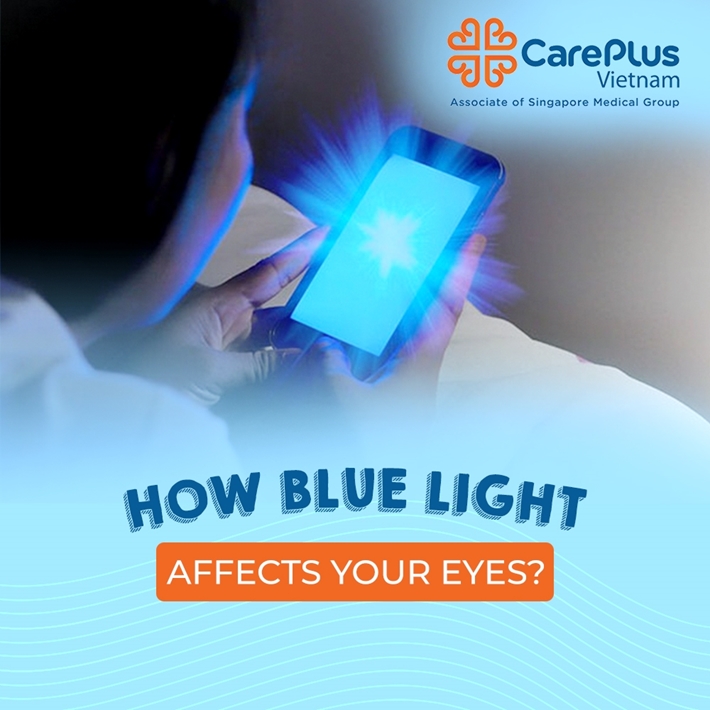Blue light - Good or bad for the eyes?
Everything has its pros and cons, although it is not possible to completely block out blue light, we can reduce it, besides, blue light also contributes to the beautiful sunshine. that we see every day. Let CarePlus pocket for yourself the necessary health and eye care knowledge to keep your eyes bright.

7/4/2022 2:23:06 PM
Today, with the development of technology, blue light is also seen from the screens of digital devices such as laptops, TVs, phones...
Blue light also has health benefits:
- Helps increase alertness.
- Improve memory.
- Enhance cognitive abilities and improve mood.
In fact, in European countries, in the winter, low sunlight also leads to many people suffering from depression and if not treated in time can lead to self-harm. Therefore, blue light therapy is also used to treat seasonal depression (SAD) in these countries.
- Regulates the body's circadian rhythm, the sleep-wake cycle.
- Blue light is not good for eyes
- The eye has the ability to block almost all ultraviolet light (UV-Ultra violet) thanks to the structure of the cornea and lens, but has almost no ability to block with wavelengths of blue light.
- Our eyes, when exposed to blue light for a long time, will cause screen vision syndrome (pain, fatigue, dry eyes, accommodation disorders ...), causing the eyes to have refractive errors such as nearsightedness, astigmatism, farsightedness.
- Especially when using electronic devices at night or in low light conditions increases the risk of vision impairment.
- Causes damage to the pigment epithelium and gradual loss of light-sensitive cells in the retina (cones, rods).
- Excessive exposure to blue light increases the risk of macular degeneration.
- Currently, there are very limited treatments for this disease, mostly to slow down the process of macular degeneration and prevent too rapid vision loss.
- Besides, exposure to blue light at night before bed can reduce the production of melatonin - the hormone that regulates sleep and disrupts circadian rhythms.
How to protect eyes from blue light
Due to the requirements of work as well as modern life, we cannot completely remove electronic devices from our activities, so how to limit the influence of blue light? To protect his eyes?
- It is recommended to use electronic devices with screens with blue light reduction dark technology
- Use a blue light filter every time you work or study with electronic devices, if you are nearsighted, you can use bluecut glasses.
- To moderate the screen brightness, turn the light of the screen to a yellow tone, the night screen should be set to night mode (if any)
- Using scientific electronic equipment, rest your eyes in moderation for 20 seconds after 20 minutes of work, look out 20 feet (6m) away to train your eyes to adjust, avoid eye fatigue.
- Spend at least 30 minutes - 1 hour in outdoor activities every day
- Food supplement good for eyes and health
- Get regular eye exams at least twice a year to detect eye diseases early